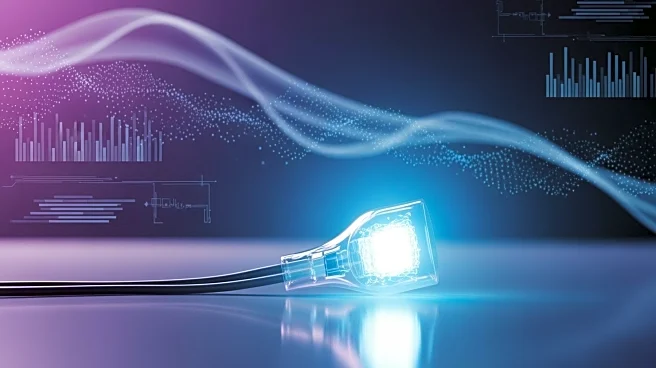What's Happening?
Recent research has highlighted the potential of device-based neuromodulation in aiding motor recovery for patients with spinal cord injuries. The study, supported by the Luzhou Science and Technology Program, involved a comprehensive analysis of clinical
trials and bibliometric data to assess the effectiveness of neuromodulation techniques. These techniques include brain-computer interfaces and transcutaneous spinal cord stimulation, which have shown promising results in restoring motor functions and reducing spasticity in individuals with spinal cord injuries. The research underscores the importance of targeted neurotechnology and circuit reorganization in facilitating recovery, with some studies demonstrating the ability of patients to regain walking capabilities through brain-spine interfaces.
Why It's Important?
The findings from this research are significant as they offer hope for improved rehabilitation outcomes for individuals with spinal cord injuries, a condition that affects thousands of people in the U.S. each year. Neuromodulation techniques could revolutionize treatment protocols by providing non-invasive options that enhance motor recovery and improve quality of life. This could lead to reduced healthcare costs and better integration of affected individuals into society. Moreover, the advancements in neurotechnology could spur further innovation in medical devices and rehabilitation strategies, potentially benefiting a wide range of neurological conditions beyond spinal cord injuries.
What's Next?
The next steps involve further clinical trials to validate the efficacy and safety of these neuromodulation techniques. Researchers are likely to explore the integration of these technologies into standard rehabilitation practices, potentially leading to new treatment guidelines. Additionally, there may be increased collaboration between medical device companies and healthcare providers to develop and refine these technologies for broader use. Stakeholders, including policymakers and insurance companies, may need to consider the implications of these advancements for healthcare coverage and accessibility.
Beyond the Headlines
Beyond the immediate implications for spinal cord injury recovery, this research could have broader impacts on the field of neurology and rehabilitation. Ethical considerations regarding the use of brain-computer interfaces and the potential for personalized medicine in neurological treatment are likely to emerge. Furthermore, the cultural shift towards accepting and integrating advanced neurotechnologies into everyday healthcare practices could redefine patient care and rehabilitation standards.

















